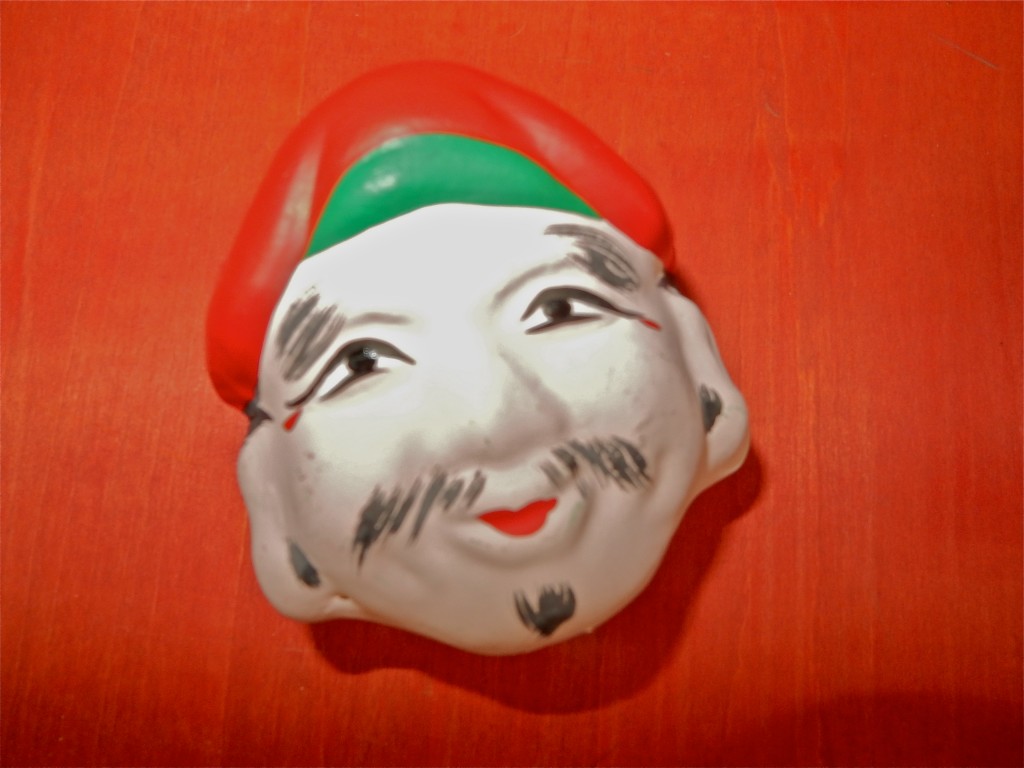
The folk deity Ebisu is at the centre of the businessman’s festival of Toka Ebisu
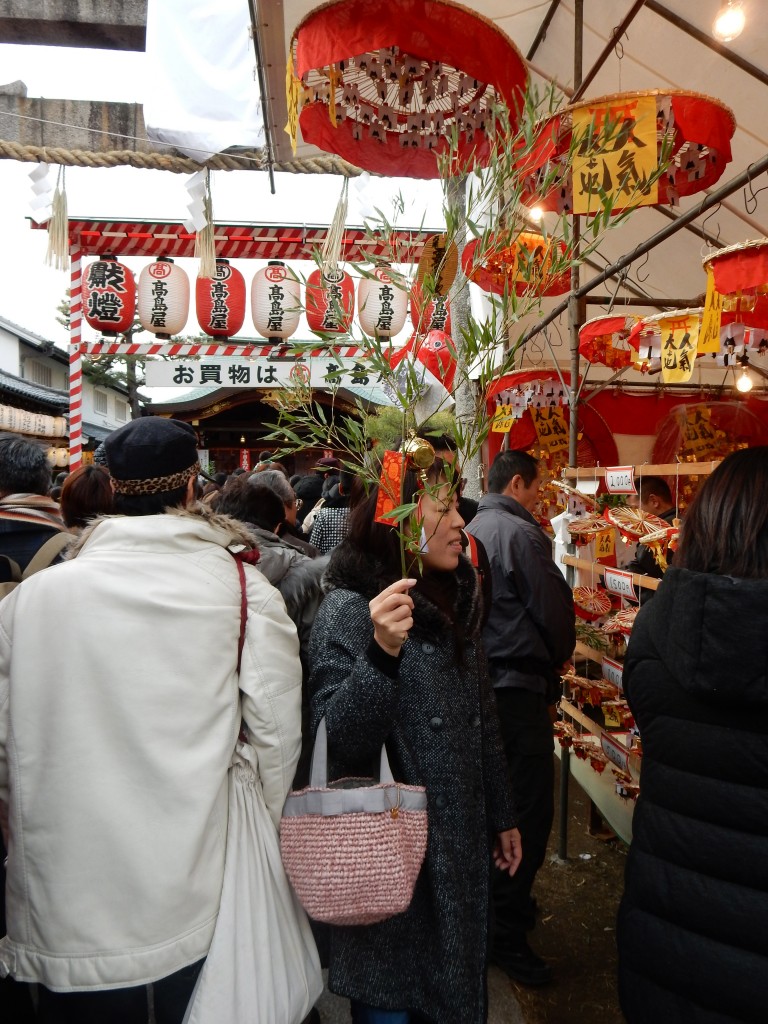
The approach to Kyoto’s Ebisu Jinja is down narrow streets of stalls and jostling crowds
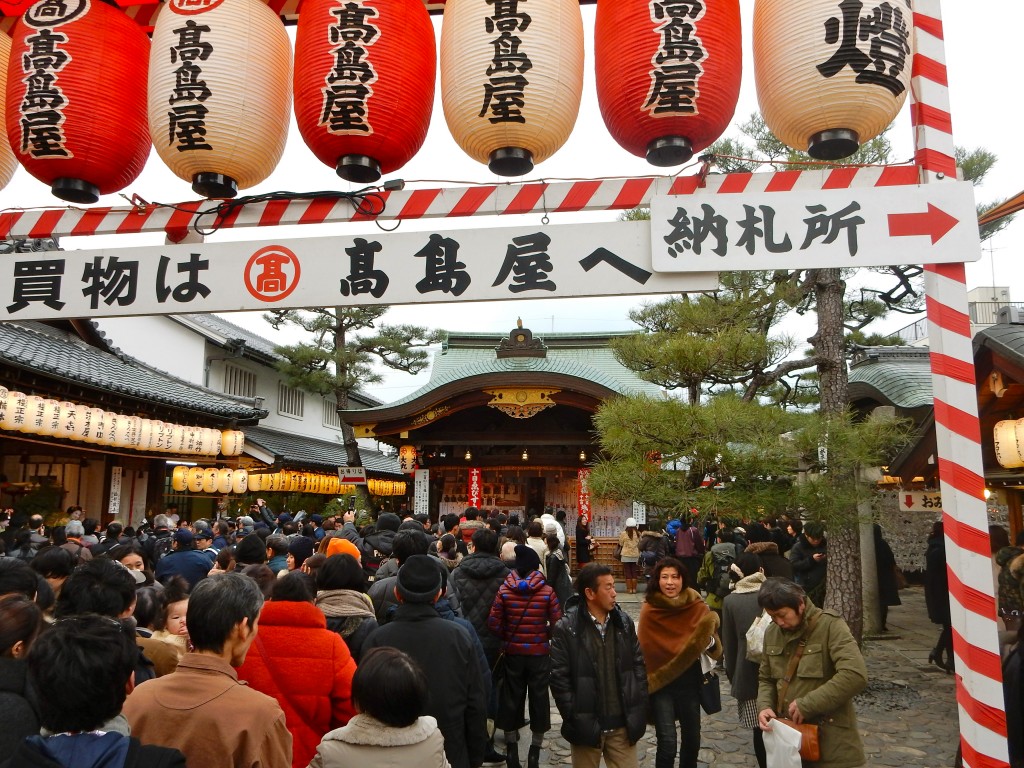
The small shrine compound is packed, with queues for the Worship Hall stretching out beyond the entrance torii
Green Shinto has covered the Toka Ebisu Festival before. It’s the first big festival of the year, taking place on January 10, and particularly popular in Tokyo, Osaka and Kyoto. The event in Kyoto takes place at the Ebisu Shrine adjacent to the Zen monastery of Kenninji. Toka means tenth day, and the festival lasts for five days centred around January 10. It’s a joyous affair, a true festival of the common people.
Because Ebisu is a deity of business, all the shopkeepers, self-employed and small business owners flock to the shrine to get their lucky charms for the year ahead. And because Ebisu is one of the Seven Lucky Deities (Shichifukujin), the charms come in the form of treasure boats tied to sasa bamboo branches. The packed streets, lines of stalls and bustling throngs have something of the feel of Edo times, and the infectious mood is augmented in the small shrine compound by kagura dance, maiko (trainee geisha) and famous actresses who help sell and promote the event.
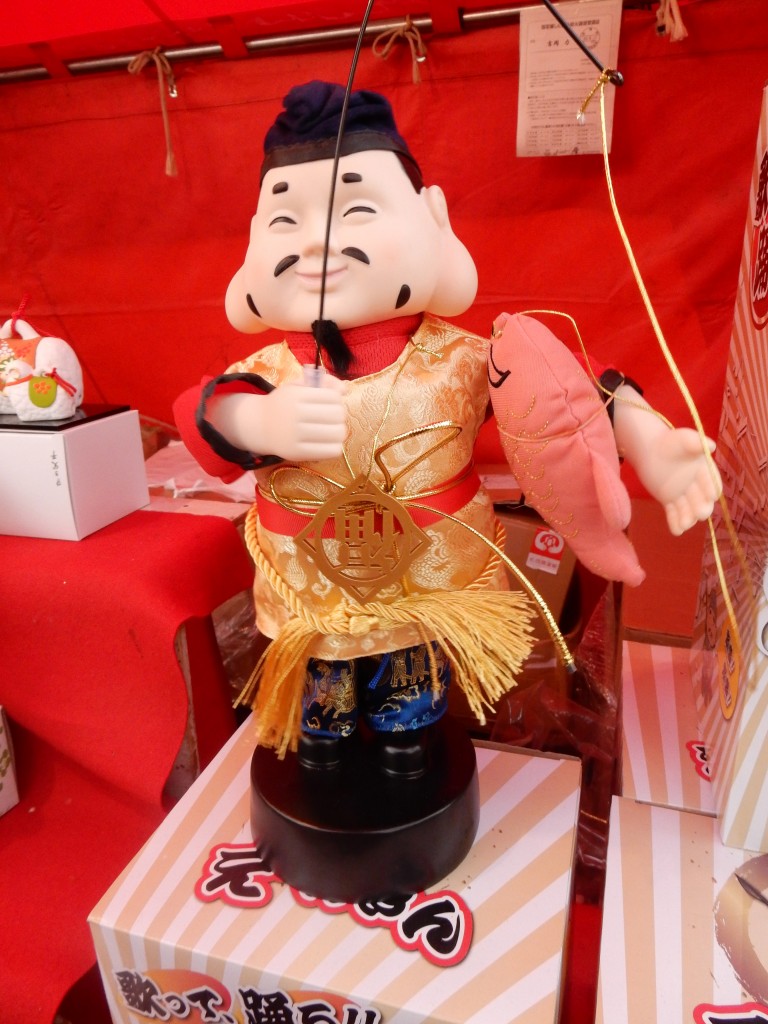
At the centre of it all is the little fisherman, Ebisu, guardian of business and the only one of the Seven Lucky Deities to be native to Japan
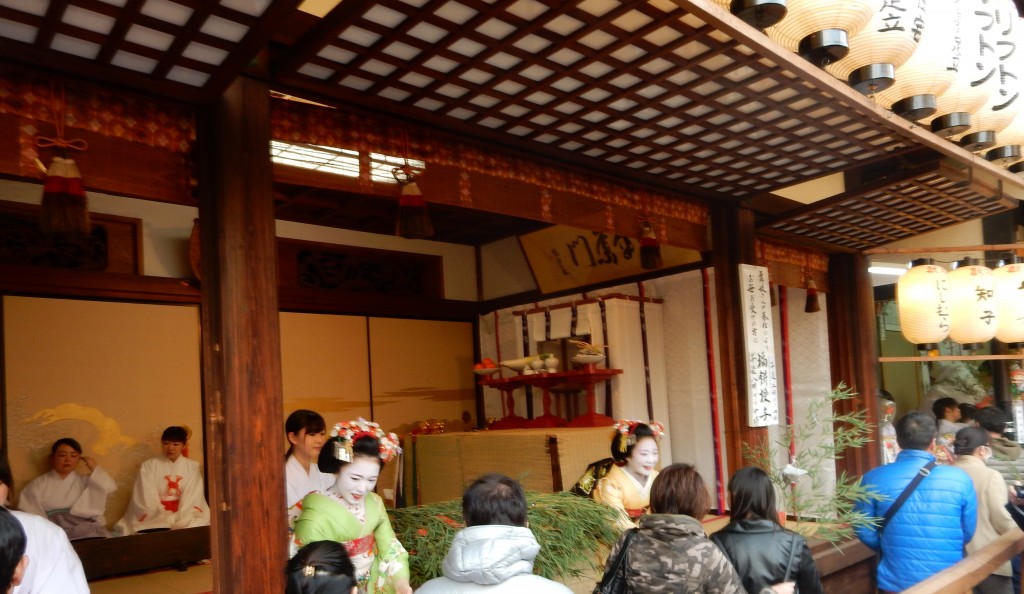
Ebisu Jinja is next to a geisha district and trainee maiko help sell the lucky charms
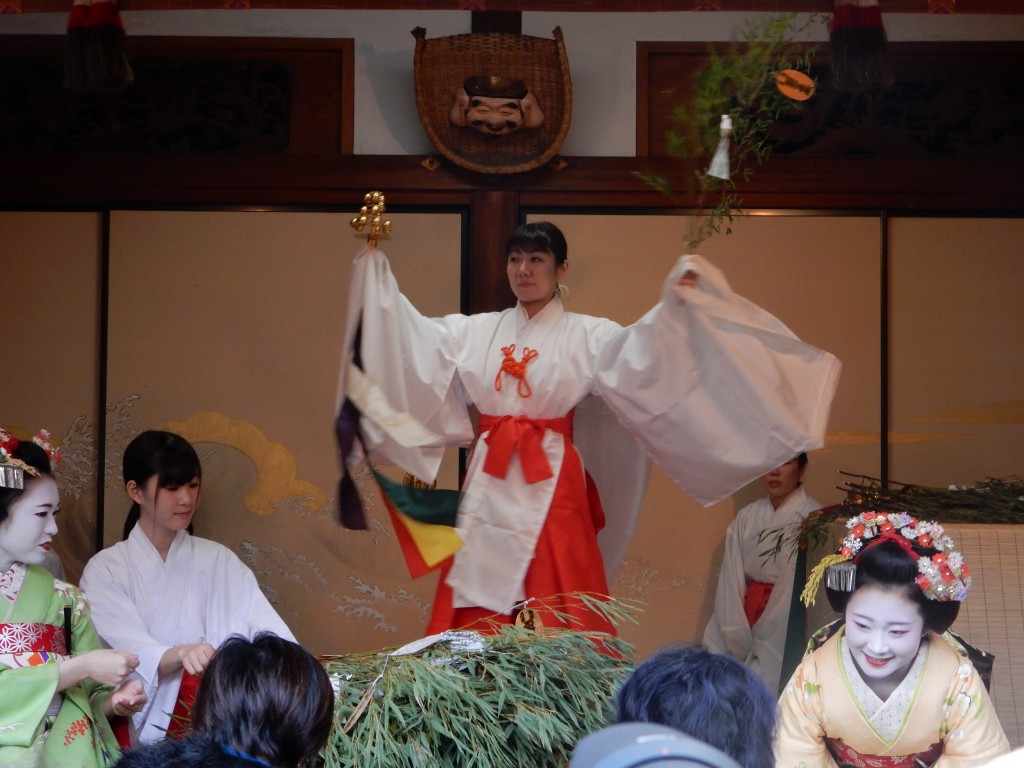
While the maiko sell, the miko dances
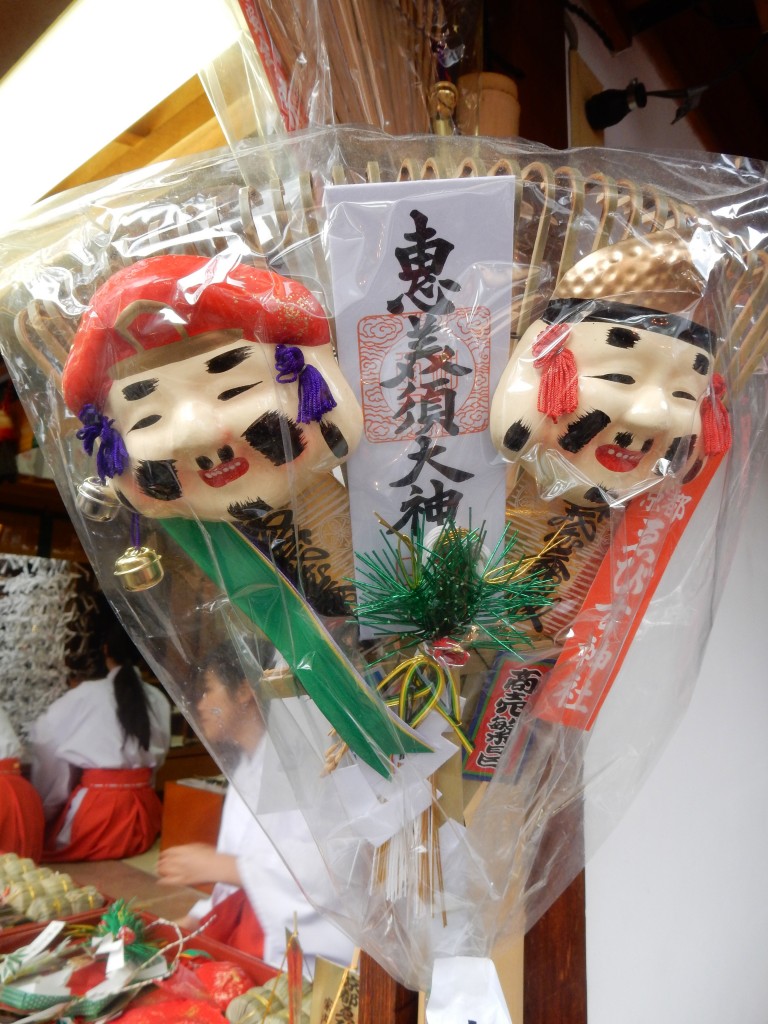
There are all kinds of charms ranging from 30 to 80 dollars and more
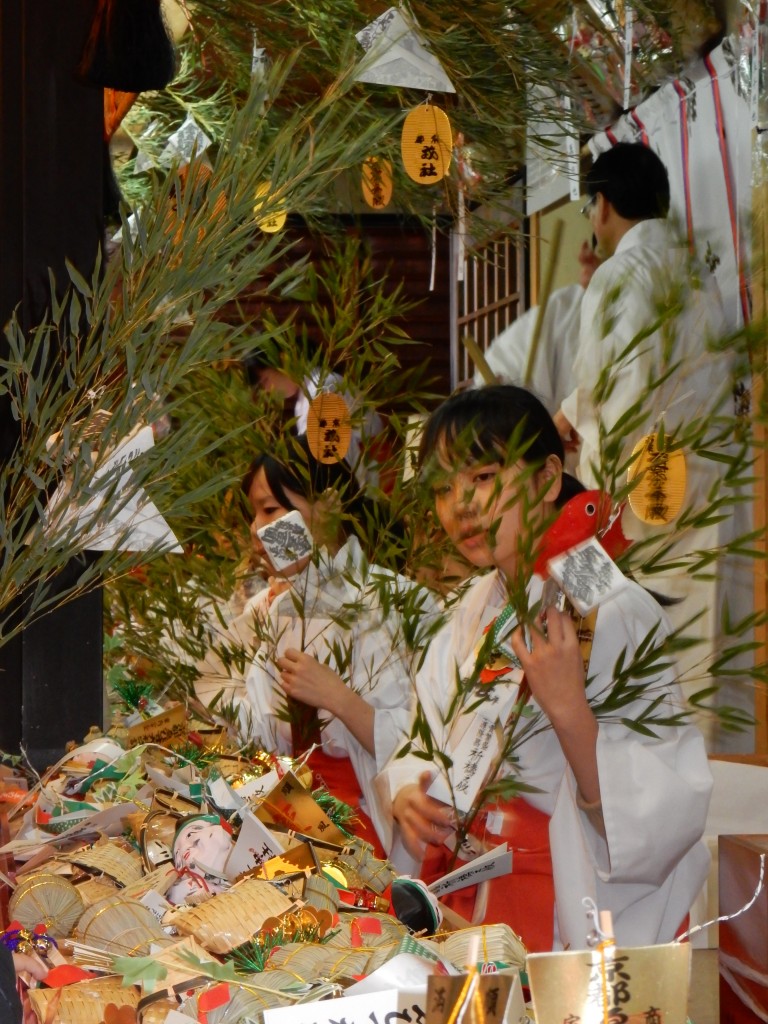
For the shrine it’s a prosperous New Year
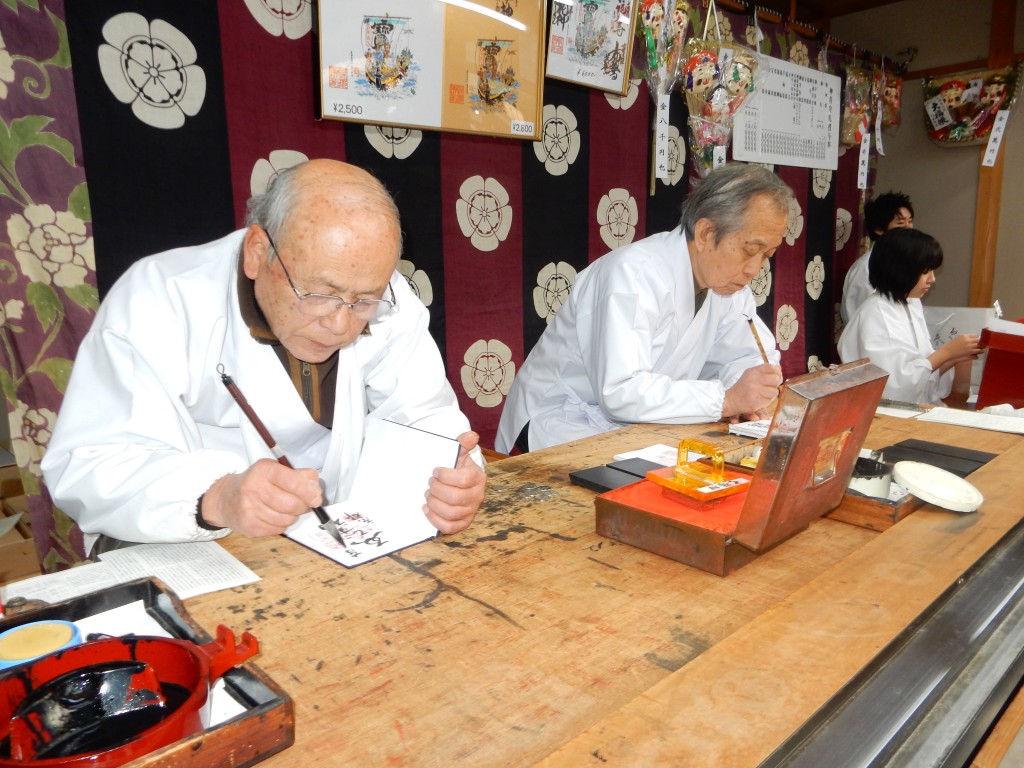
Ebisu Jinja is one of the shrines in the local Seven Lucky Gods pilgrimage, and to signify their visit pilgrims get their books signed and sealed by people skilled in calligraphy
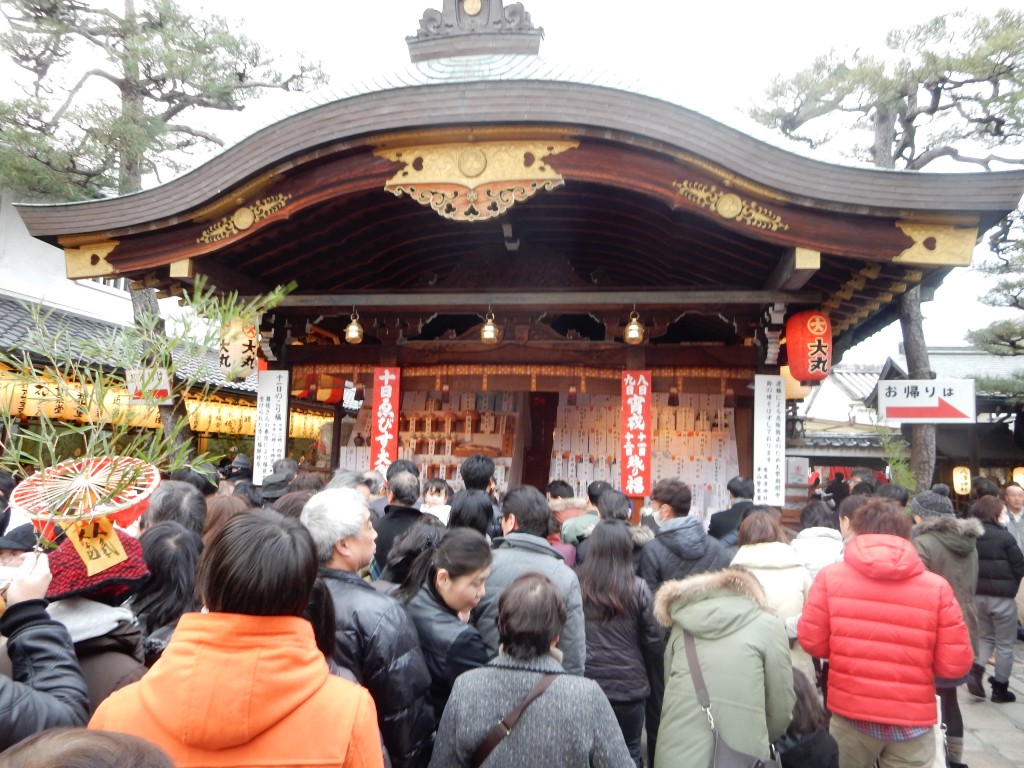
Such is the throng before the Worship Hall that many resort to throwing their coins over the heads of those in front
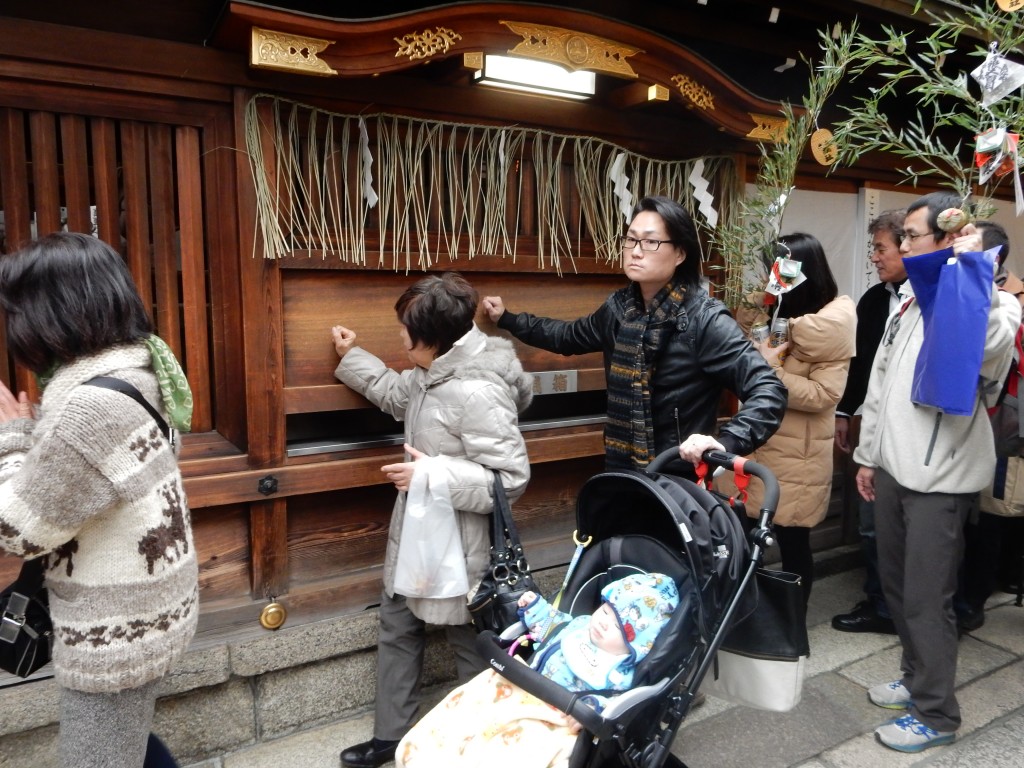
After paying respects at the Worship Hall, people knock on heaven’s door at the side of the building…
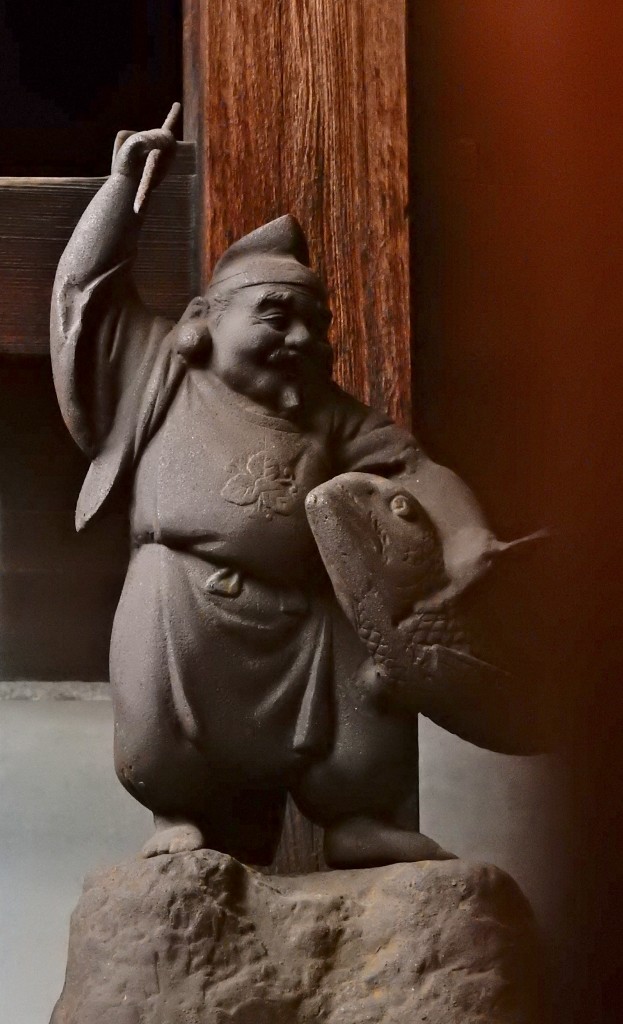
… because behind the ‘door’ is Ebisu himself, said to be hard of hearing. The knock is to ensure that the entreaty for a successful business year is heard okay.

Leave a Reply